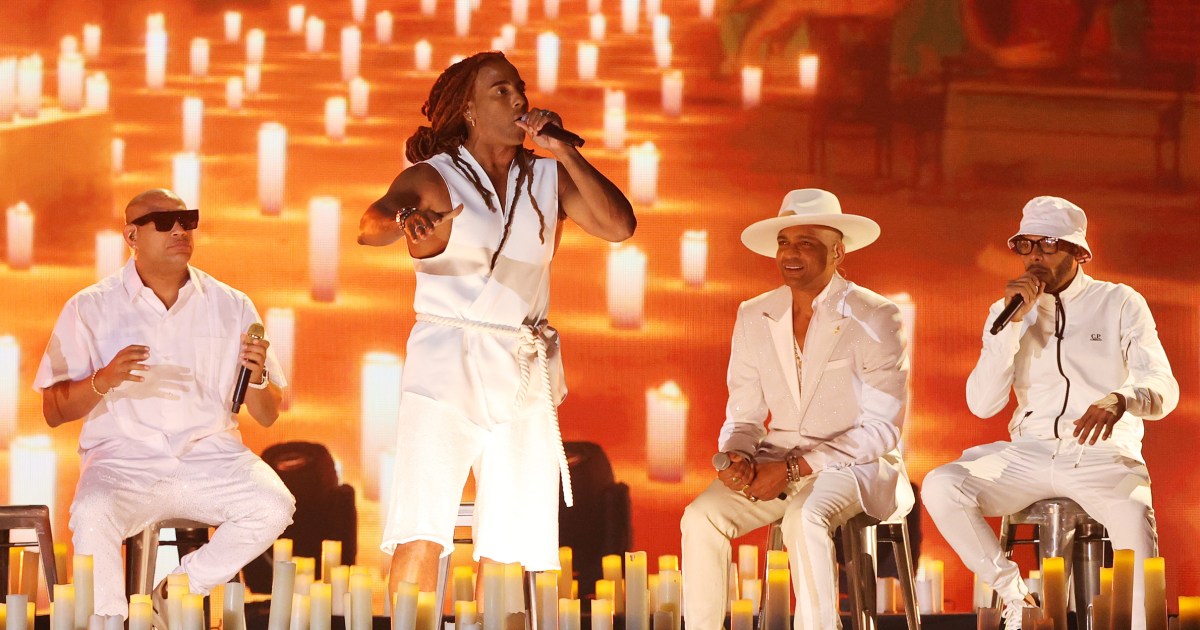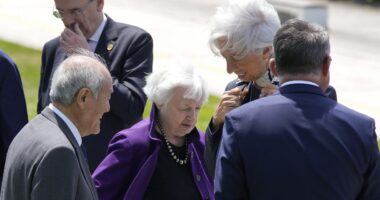
A group of Cuban musicians, including one imprisoned in Cuba, won song of the year at the Latin Grammy awards on Thursday for their song “Patria y Vida” — garnering even more international attention for a song that’s become an anthem for Cuba’s opposition.
Banned in Cuba, “Patria y Vida” is a song that transcends politics and culture. Amid the guitar and rhythmic beat, it’s an emotional song whose lyrics denounce the harsh realities Cuban face on an everyday basis — including censorship, lack of food and the sadness of mothers whose children have migrated from the island.
“For me, this song has been the emotional awakening for Cuban society,” Yadam González, one of the song’s authors and producer who was on stage Thursday, said in a phone interview with NBC News on Friday.
González said the song has ” served as a bridge for Cubans to have a way to reflect their pain and their desire for change.” At the Grammys, the award winners dedicated the song to Cuba’s political prisoners.
The group Gente de Zona, Yotuel of the group Orishas, and singer-songwriter Descemer Bueno collaborated on the song with two rappers in Cuba, El Funky and Maykel Osorbo, whose real name is Michael Castillo. Both rappers are part of an artists’ collective in Cuba known as the San Isidro Movement, who have protested against the Cuban government’s censorship.
Castillo is being held in a maximum-security prison in Cuba after his arrest in May. He went on a six-day hunger and thirst strike in late October to protest his imprisonment and Cuba’s crackdown on free expression. Activists have said that Castillo is sick.
“Homeland and Life” is a play on the famous revolutionary slogan “Patria o Muerte” (Homeland or Death), a term that has been used by Cuba’s government for decades. The title is symbolic and full of meaning for those who oppose the Communist government. Acts of dissent, banned in Cuba, have grown during the past year. During the July 11 historic antigovernment protests that swept through the island people could be heard shouting “Patria y Vida” and some wrote the words on signs.
González, who left Cuba for Denmark in 1996 and now resides in Miami, said that when he heard the words “Patria y Vida” being shouted during July’s protests, he felt “very proud to be part of the emotions Cubans were feeling. “In this case, I refer to Cubans in a very personal way, because my parents still live in Cuba,” he said.
The group performed at the Latin Grammys dressed in white, in solidarity with activists in Cuba who had called for a nationwide protest on Monday. The protest never happened after authorities surrounded activists’ homes, preventing them from leaving while keeping a significant police presence on the streets. Instead, activists dressed in white and hung white sheets outside their homes in a sign of peace.
Follow NBC Latino on Facebook, Twitter and Instagram.
Source: | This article originally belongs to Nbcnews.com










